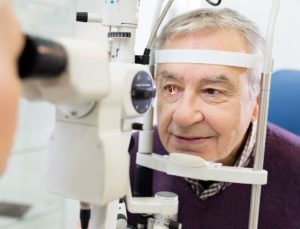Getting Familiar with Keratoconus
- Posted on: Jan 30 2020
 Some of the conditions that affect the cornea at the front of the eye are more well-known than others. Keratoconus is not one that most people ever hear of. Because this condition affects how light passes through the eye, visual distortion needs to be addressed at some point. Here, we discuss the details of keratoconus to help you know what to do if blurry vision is caused by this corneal problem.
Some of the conditions that affect the cornea at the front of the eye are more well-known than others. Keratoconus is not one that most people ever hear of. Because this condition affects how light passes through the eye, visual distortion needs to be addressed at some point. Here, we discuss the details of keratoconus to help you know what to do if blurry vision is caused by this corneal problem.
What is it?
Keratoconus is a condition that may develop during a person’s teens or twenties. It involves the thinning of the cornea. Normally, the cornea is rounded just enough to direct light accurately to the retina at the back of the eye. When the cornea thins, it pushes forward at the center, creating a cone shape. The new shape of the thinning cornea distorts rays of light as they pass through, affecting vision.
What causes keratoconus?
Research suggests that some people may be genetically predisposed to keratoconus. Usually, the condition is diagnosed in multiple family members. The condition of the cornea is also related to an imbalance of corneal enzymes that increase susceptibility to oxidative damage. Additional risk factors for keratoconus include poorly-fitting contact lenses, chronic eye irritation, excessive eye rubbing, and exposure to ultraviolet light.
How Keratoconus is Treated
There are several ways to manage and treat keratoconus. In mild cases, an eye doctor may manage vision distortions with prescription eyeglasses or soft contact lenses. More severe shape irregularities require medical intervention.
- Gas-permeable contact lenses are prescribed to meet the unique needs of the patient’s eye, creating a smooth corneal surface through which light can pass uninterrupted.
- Collagen crosslinking of the cornea may be performed to strengthen the cornea. This type of procedure involves the insertion of riboflavin eye drops and exposure to ultraviolet light. The combination results in a chemical reaction that crosslinks collagen fibers within the cornea.
- Surgery to replace part or all of the affected cornea may be necessary to resolve advanced keratoconus.
Roholt Vision Institute provides care developed around your individual needs. To schedule a consultation, contact our Canfield, North Canton, or Alliance office.
Posted in: Keratoconus
